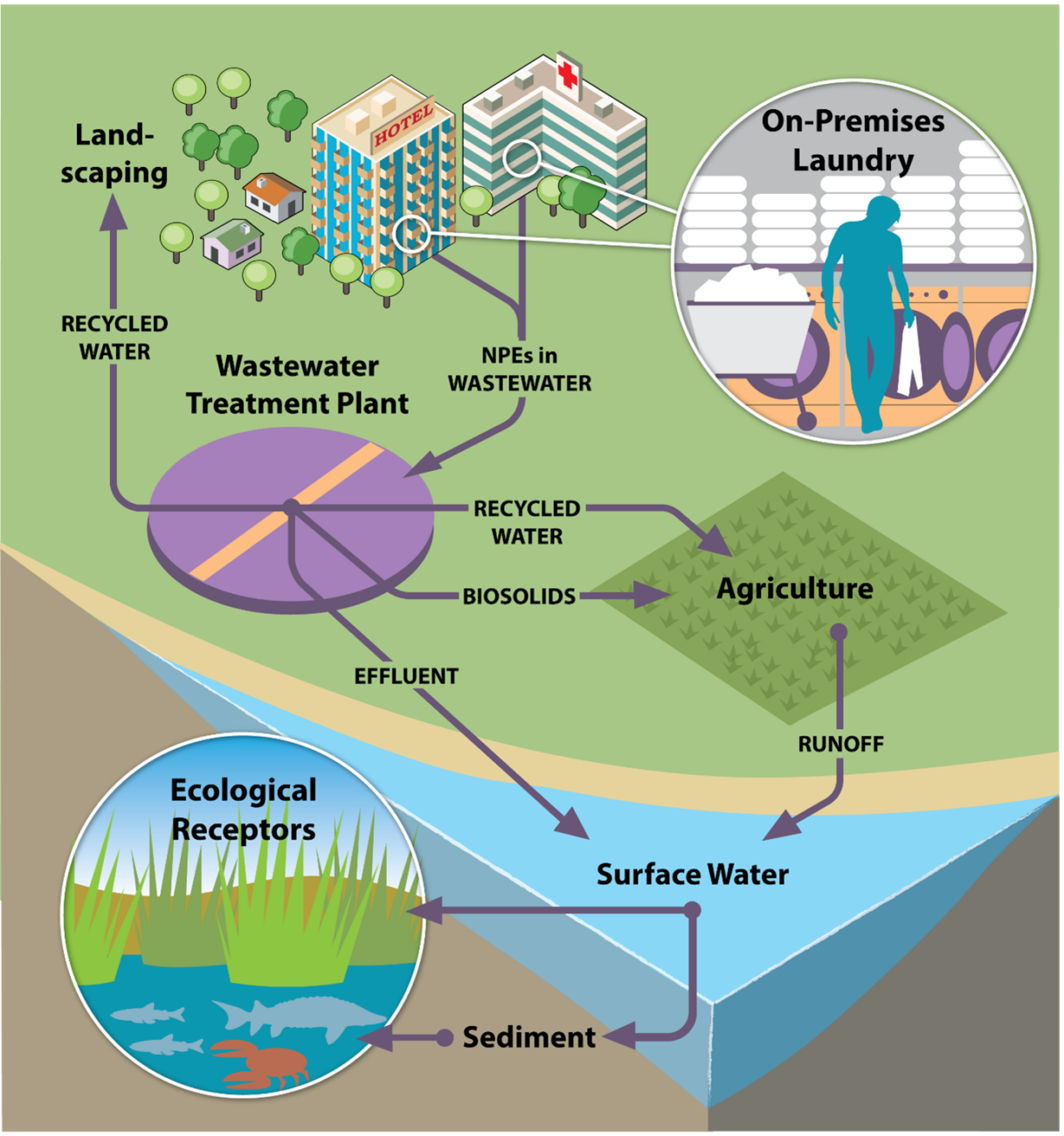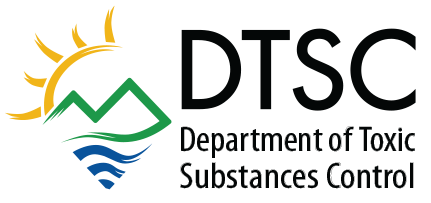Adopted Priority Product: Laundry Detergents Containing Nonylphenol Ethoxylates (NPEs) (Effective October 1, 2024)
DTSC has finalized a regulation pursuant to the Safer Consumer Products (SCP) Regulations to list a new Priority Product: Laundry Detergents Containing Nonylphenol Ethoxylates (NPEs), effective October 1, 2024.
Domestic and foreign manufacturers of laundry detergents (as defined in the regulation) that contain NPEs and whose products are placed into the stream of commerce in California must submit a Priority Product Notification (PPN) for those products by December 2, 2024. After submitting the PPN, manufacturers have the option to submit one of the following through CalSAFER by April 1, 2025:
- a Chemical Removal Intent/Confirmation Notification,
- a Product Removal Intent/Confirmation Notification,
- a Product-Chemical Replacement Intent/Confirmation Notification, or
- a Preliminary Alternatives Analysis Report or these alternate reporting options.

The responsibility to comply falls first on manufacturers, but if a manufacturer fails to comply, the responsibility to comply may shift to importers or retailers, if DTSC notifies them accordingly.
Manufacturers of laundry detergents whose products do not contain NPEs need not take any action.
Available Alternatives
The SCP Regulations define “alternatives” broadly, including changes to the product that reduce or eliminate the use of NPEs, with or without the use of a replacement chemical, or any other change to laundry detergents that reduces exposures or potential adverse impacts caused by the Priority Product.
To facilitate manufacturers’ search for alternatives, we included a non-exhaustive list of potential alternatives in the Priority Product Profile (pp. 62-69), but please keep in mind that this does not constitute an endorsement by DTSC. We have not vetted any alternatives for safety, functionality, or performance; assessing that is the responsibility of the manufacturer.
Manufacturers who elect to perform an Alternatives Analysis must consider all the information on potential alternatives included on our website, including in the Priority Product Profile. Additionally, they must document why the information they rely upon meets SCP’s definition of “reliable information” and explain all the criteria used when selecting their proposed alternative.
Rationale for Priority Product Listing
Based on the criteria in the SCP Regulations, we have determined that aquatic organisms can be exposed to NPEs and their degradation products from laundry detergents and this exposure may cause or contribute to significant adverse impacts to aquatic organisms, as described in the Product-Chemical Profile for Laundry Detergents Containing NPEs .
NPEs are well-known aquatic toxicants that can persist in the environment and have been detected in environmental media and aquatic species.
NPEs are a class of low-cost, highly effective surfactants (compounds in detergents that increase cleaning efficiency) used for their cleaning properties in a variety of consumer products. NPEs are well-known aquatic toxicants that can impact the growth, reproduction, and development of fish and aquatic invertebrates at low concentrations. Once NPEs reach wastewater treatment plants, they break down into nonylphenol or other degradation products that are even more persistent and toxic than NPEs. Organisms living in wastewater-impacted environments are chronically exposed to both NPEs and their degradation products because wastewater discharge (effluent) continuously releases these chemicals to the aquatic environment.
Nonylphenol, the most frequently analyzed degradation product of NPEs, has been detected in California surface waters, sediments, and wastewater-related media, including influent, effluent, sludge, and biosolids. These detections can exceed aquatic guidelines, standards, or criteria established by various governments to protect aquatic organisms from adverse impacts. Nonylphenol has also been detected in coastal organisms across multiple levels of the food chain, demonstrating it can transfer from the aquatic environment to these organisms.
Laundry detergents containing NPEs have the potential to discharge significant amounts of NPEs into the aquatic environment.
Due concern for NPEs in the aquatic environment, many laundry detergent manufacturers have voluntarily stopped using NPEs in their products. The use of NPEs in household laundry detergents is thought to have been completely phased out. However, NPEs are still widely used in laundry detergents marketed to large scale on-premises launderers (OPLs) such as hotels and hospitals. The amount of laundry washed by OPLs in California can be significant. We estimate California OPLs wash up to two billion pounds of laundry per year, resulting in up to two million pounds of NPEs being discharged to wastewater treatment plants and the aquatic environment.

Public Engagement
Research Initiation
- We began researching this topic in 2016.
Workshops and Public Comments
- On June 11, 2018, we held a public workshop to get input on our Draft Product-Chemical Profile (view the webcast video). The related public comment period ran from May 11 until June 25, 2018. Materials from that workshop are available on our 2018 Workshops and Events Webpage. The comments submitted can be viewed on CalSAFER.
- Between November 10 and December 31, 2023, we held a public comment period for our regulatory proposal to list laundry detergents containing NPEs as a Priority Product. The public comments received can be found on CalSAFER. We considered input from the public comment period while preparing the final regulation.
SCP Key Info
- About Safer Consumer Products
- Program Overview
- Candidate Chemicals
- Priority Product Work Plan
- Priority Products
- Alternatives Analysis
- Regulatory Response
- Compliance & Enforcement
- Research Studies
- Early-stage SCP Projects
- Information Call-in
- Healthy Nail Salon Recognition Program
- Limiting Copper in Brake Pads
Engage and Learn More
- Frequently Asked Questions
- CalSAFER
- SCP Regulations
- Training Materials
- Safer Consumer Products Library
- Safer Consumer Central
- SCP’s Environmental Justice Initiative
- Workshops & Events
- Green Ribbon Science Panel
- PEARL
- Failure to Comply List
- Publications & Media
- Petitions
- About Us
- Career Opportunities

